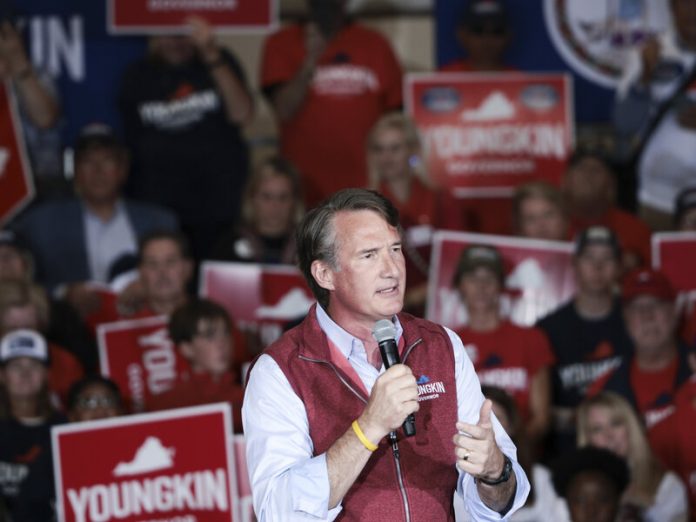Alan Kennedy J.D. ’09, Ph.D., is a lecturer of public policy. Email Alan at ahkennedy@wm.edu.
The views expressed within are the author’s own.
On the eve of the Virginia gubernatorial election between Governor Glenn Youngkin and former Governor Terry McAuliffe, Youngkin promised, “On day one, I will ban critical race theory.” To his credit, he kept his promise. On day one, Youngkin’s first executive order took aim at critical race theory and other “inherently divisive concepts.” Youngkin’s second executive order banned school mask mandates; a related directive banned state employee COVID-19 vaccine mandates.
Make no mistake: Youngkin’s initial attacks on science and education amount to a war on truth.
Four months ago, I wrote in a Flat Hat opinion piece that the College of William and Mary’s COVID-19 vaccine mandate was “sound public policy.” It was and it is. The problem is Youngkin’s decision to ban such mandates. It was announced by Chief Operating Officer Amy Sebring on Jan. 18 and President Katherine Rowe on Jan. 19 that the College would no longer require employee vaccination. This is not because the pandemic is over but because the College, as a state university, is legally bound to comply with Youngkin’s misguided executive directive.
Youngkin’s executive directive banning state employee COVID-19 vaccine mandates, disclosure of vaccination status and mandatory testing makes no attempt to justify the ban on any grounds other than “individual freedoms and personal privacy.” Youngkin’s mask mandate ban, however, reveals that the new governor is in denial. Youngkin’s order justifies the ban on the grounds that Omicron “results in less severe illness,” and that children five and older may now be vaccinated.
As the new year dawned, Rowe lamented that we were entering a third year with the pandemic and that COVID-19 infections would likely rise, just as they have been rising across the nation. Then, Rowe made the case for requiring all students, faculty and staff to provide proof that they have received COVID-19 booster shots, which reduce transmission. Now, thanks to Youngkin, we will be left wondering who on our campus might be vaccinated and who might be infected.
Youngkin’s ban on sound public policy measures will likely prolong the COVID-19 pandemic.
Similarly, Youngkin’s ban on teaching critical race theory aligns with the Fox News approach to public policy: repeat a falsehood often enough and people will begin to believe it. Youngkin’s order misleads, positing that, “Inherently divisive concepts, like Critical Race Theory and its progeny, instruct students to only view life through the lens of race.” Rooted in criticism of systemic racism, critical race theory uses race as a lens, but does not deny that other views exist.
After Youngkin’s election last November, The Flat Hat quoted College Law Professor Vivian Hamilton describing critical race theory as “an academic discipline that emerged from precursors like legal realism and critical legal studies.” Difficult to define, critical race theory is premised on the idea that race is a social construct, racism is not “aberrational” but institutional, perpetuated by public laws and institutions, and is political because scholars seek racial justice.
Because critical race theory is difficult to define, it is not actually taught in K-12 public schools in Virginia, but it is certainly worth discussing at the College and other state universities. Assassinated civil rights leader Medgar Evers once said that you can kill a person, but you can’t kill an idea. The truth is that Youngkin, following in former President Donald Trump’s footsteps, wants to kill the idea that racism is real by banning teachers from teaching about discrimination.
Sadly, Youngkin is not alone in his war on truth. He is encouraged by like-minded Republicans.
Youngkin’s appointment of Jillian Balow to be Virginia’s Superintendent of Public Instruction and to censor any hint of “inherently divisive concepts, including concepts or ideas related to Critical Race Theory” from state policies, trainings, curricula and programs, should raise more alarms about the new governor’s approach to education. Balow, who held the job in Wyoming, attacked federal funding to teach the “1619 Project” and other works she viewed as “divisive.”
Delegate Wren Williams defeated a Republican incumbent by attacking him for not sufficiently backing Trump. Williams attacked his next opponent’s activism. Williams questioned President Joe Biden’s victory. He wrote a bill banning schools from requiring discussion of “any current event or widely debated and controversial issue of public policy or social affairs,” and telling them what to teach, such as “the first debate between Abraham Lincoln and Frederick Douglass.”
Truth was a casualty of war: Lincoln debated Senator Stephen Douglas, not Frederick Douglass.


Hoes mad
So wise!
Prioritizing individual liberties is also sound public policy. Those liberties were suspended early in the pandemic with the lockdown. Now that we have vaccines, abundant PPE, and more clear insight into the relatively low risks that COVID poses to youth, it is time to re-prioritize personal liberty.
Individuals can get a vaccine – they are 90% effective. Individuals can also wear a mask – a high quality, well-fitted mask will protect you from infection for many hours. Those two mitigation strategies are highly effective at reducing risk of infection such that restricting other peoples choice in these matters is no longer acceptable.
The people have started speaking, elections matter, and there’s more to come.